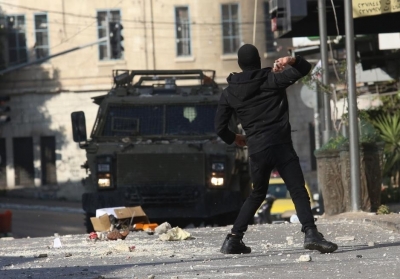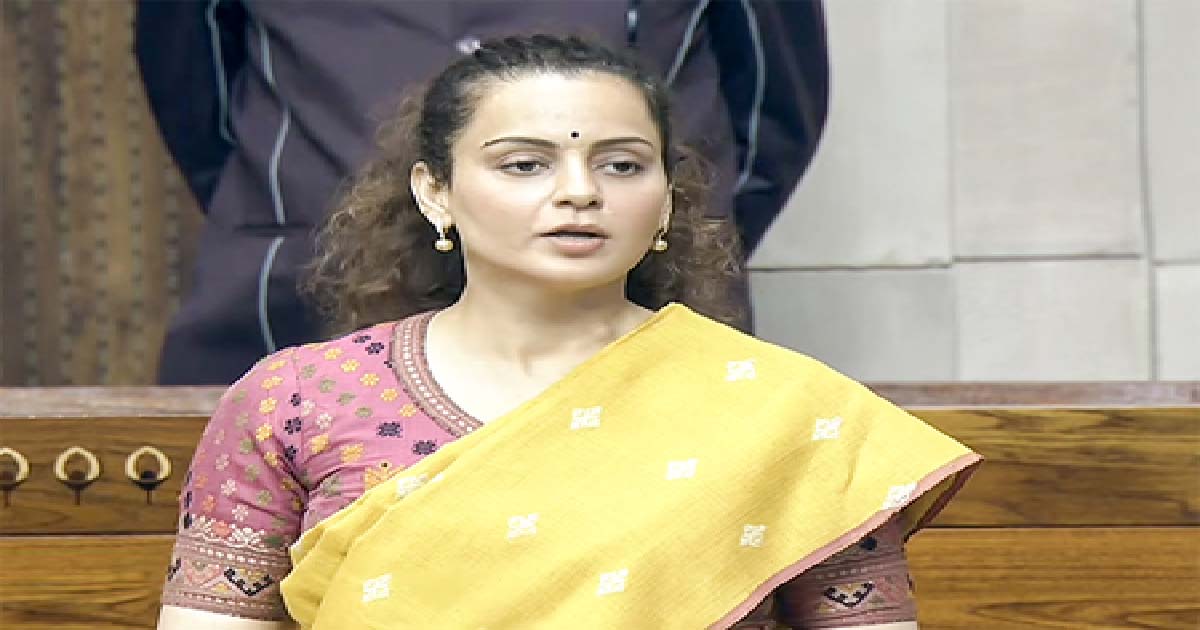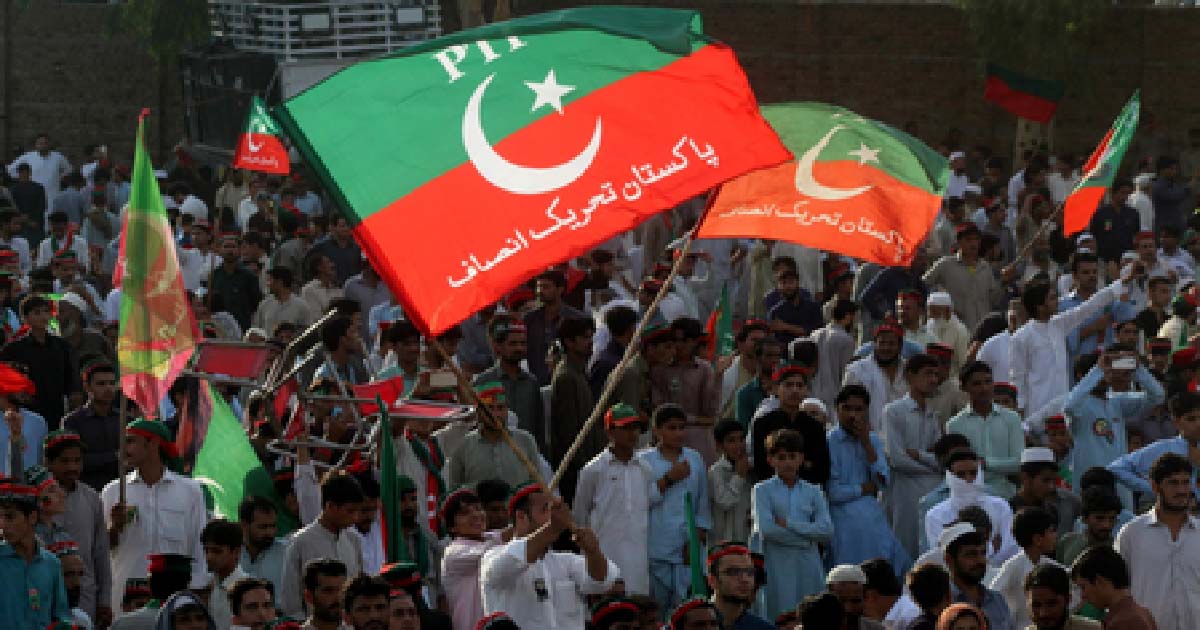International News
216 Palestinians injured in West Bank clashes

At least 216 Palestinians were injured during clashes with the Israeli soldiers southeast of the West Bank city of Nablus.
Fierce clashes broke out on Monday between anti-settlement protesters and Israeli soldiers in the village of Beita, said the Palestinian Red Crescent Society in a statement.
It added that 22 people were shot by rubber bullets, while dozens inhaled teargas fired by Israeli troops, reports Xinhua news agency.
The clashes broke out after seven Israeli ministers, 20 MPs, and more than 17,000 Israeli settlers organised a march towards the outpost of “Avatar” — an unpermitted outpost in the northern West Bank — to demand legalising it.
Palestinian witnesses told Xinhua that thousands of Israeli settlers organised “a provocative march towards the outpost of Avatar near Nablus”.
The Palestinian protesters waved flags, chanted slogans against Israel, burned tires, and threw stones at the Israeli soldiers, who fired teargas and rubber bullets to disperse them, they added.
Condemning the march, Nabil Abu Rudeineh, spokesman of the Palestinian presidency, said: “The settlers’ invasion does not change the fact that it is Palestinian land and will remain so, and that this invasion, which comes by force of arms, does not create a right.”
Abu Rudeineh held the Israeli government responsible for Israeli settlers’ and soldiers’ daily attacks on the Palestinians, and called for an immediate and rapid intervention to stop it.
Israel’s National Security Minister Itamar Ben-Gvir, also a settler and leader of the extreme-right Jewish Power party, said the march that its aim was “to say that the nation of Israel is strong” and that “we are here and will remain here”.
The march took place amid mounting violence, which was sparked by clashes between Palestinian worshippers and the Israeli police at the Al-Aqsa Mosque compound last week.
The raids came at a sensitive time when Muslims are observing the holy month of Ramzan, while Jews were celebrating the Passover holiday.
More than 600,000 Israeli settlers live in dozens of settlements, which were established after Israel occupied the West Bank and East Jerusalem in 1967.
International News
‘Govt follows protocol’: BJP respond after Rahul Gandhi remarks on Oppn-Putin meeting

New Delhi, Dec 4: After Congress MP Rahul Gandhi alleged that the Centre has been advising foreign delegations against meeting or interacting with the Leader of the Opposition (LoP) – a practice he said was followed during previous UPA and NDA regimes, ruling party leaders on Thursday rejected the claim, asserting that the “government follows due protocol” in all matters.
The startling charge by Rahul Gandhi, while speaking to reporters outside Parliament, comes hours ahead of Russian President Vladimir Putin’s two-day visit to India. His remarks are set to raise eyebrows in the political corridors and also set the stage for heated sparring between the BJP and Congress.
Rahul Gandhi said, “Meetings with the LOP take place with delegations coming from outside. It has been a long-held tradition and has always been done this way,” he said, while citing instances during Manmohan Singh and Atal Bihari Vajpayee governments.”
Speaking to Media, BJP MP Kangana Ranaut said, “These decisions are made by the government. Atal ji was a national asset, and the entire country was proud of him. He was a great patriot. I don’t know why Rahul Gandhi is not being allowed, but in my opinion, his commitment to the nation is questionable. His role in creating unrest and trying to divide the country raises doubts about his intentions. And if Rahul Gandhi is comparing himself to Atal ji, then I would suggest he join the BJP — only then could he become like him.”
BJP MP Bhim Singh said, “Why would the government stop him? He only creates chaos and does not speak where he is supposed to speak.”
Echoing a similar stance, BJP MP Brij Lal added, “The government follows protocol, and work will be carried out accordingly. Rahul Gandhi is only making this political.”
JD(U) leader K. C. Tyagi clarified, “The government does not decide such protocols. Visiting heads of state themselves decide whom they wish to meet.”
Union Minister Ramdas Athawale added, “Foreign leaders visit on the invitation of the ruling party or government. If President Putin wishes, Rahul Gandhi, as LoP, can meet him. The government has no role in that.”
International News
Trump says Putin ‘would like to end war’ with Ukraine

Washington, Dec 4: US President Donald Trump said Russian President Vladimir Putin “would like to end the war” in Ukraine, citing what he described as a “very good meeting” between Putin and two close Trump allies, Jared Kushner and Steve Witkoff, in Moscow.
Trump told reporters at the White House on Wednesday (local time) that he had spoken with Kushner and Witkoff following their talks with Putin. “Their impression was that he would like to see the war ended,” Trump said. “I think he’d like to get back to a more normal life. I think he’d like to be trading with the United States of America, frankly, instead of losing thousands of soldiers a week.”
Trump added, “I thought they had a very good meeting yesterday with President Putin. We’ll see what happens. It’s a war that should never have been started. It’s a war if I were president… that war would have never happened.”
He also reiterated his longstanding claim that the conflict would not have erupted if he had been in office. “If I were president, no war would have ever happened. They would have had 100 per cent of their territory. Nothing would have happened,” he said.
Trump described the battlefield toll as catastrophic. “Think of this — last month, 27,000 soldiers… mostly young soldiers died last month; in one month,” he said. “That’s the only reason I’m trying to help.”
He also said the US was no longer directly financing Ukraine’s war effort, telling reporters, “We’re not spending any money in the war, we’re selling to NATO. We’re not being ripped off like we were under Biden.”
Asked about Kremlin statements suggesting no compromise was forthcoming, Trump replied, “I don’t know what the Kremlin is doing.”
The Trump team’s back-channel contacts with Moscow have drawn global attention amid stalled frontline dynamics and ongoing diplomatic efforts. Casualty figures in the conflict remain contested, while the United States and European allies continue to debate next-phase military and political frameworks for ending the war.
President Putin arrives in New Delhi on Thursday for a summit talk with Prime Minister Narendra Modi.
International News
India on high alert as Imran Khan rumours push Pakistan towards chaos: ISI eyes major diversionary strike

New Delhi, Nov 28: Indian Intelligence agencies have alerted the security forces to remain in a state of very high alert in the wake of the developments unfolding in Pakistan. Trouble is brewing in Pakistan in the wake of rumours relating to the death of former Prime Minister, Imran Khan.
Huge crowds are mobilising outside the Adiala Jail in Rawalpindi, where Khan is lodged. Thousands of PTI supporters have gathered outside the jail demanding that they meet with their leader.
The Pakistan Army, however has refused permission for a meeting with Khan, while also dismissing rumours about his death.
Intelligence Bureau officials say that rumours relating to the death of Khan began to circulate three days back. Since then there has been a massive build up of his supporters. If the Army does not provide proof that Khan’s supporters have been seeking, then violence is bound to engulf Pakistan.
An official said that violence is imminent in Pakistan given the current situation. For India, the spillover is the concern and trouble in the neighbourhood is never a good sign for national security.
An Intelligence Bureau official said that the ISI is already planning a series of major attacks in India, so that attention is diverted. Khan remains a very popular figure in Pakistan and if news about his death is true, then the country would witness violence of a very unprecedented nature.
It would be beyond the control of the security forces in Pakistan to control the people and eventually the country could face a civil war like situation. The Army wants to keep Imran Khan down and all issues relating to him under wraps.
However, it may not be able to sustain this for long as the people are getting anxious and are seeking answers. The ratings of the establishment in Pakistan, especially with Field Marshal Asim Munir at the helm has hit an all time low.
An official said that the people are being stopped by force and the Army does realise that a majority of the population wants the current dispensation out.
Pakistan watchers say that the people are particularly upset that the Army engineered a coup to take Khan out of power and install a dummy government under Shehbaz Sharif. There is no respect for a democratically-elected process and the people have being voicing their disgruntlement against this, experts add.
Indian officials say that the rumours relating to Khan’s death was something that the establishment did not expect. This has put the Army on the back foot. If one looks at the build up of supporters, it is massive and the Army would not be able to contain them by using force.
Officials say that the Pakistan Army would look to buy time so that it would be able to handle the situation. In order to buy time, the Army and ISI would plot attacks in India so that this would act as a diversion for sometime.
The chatter that has been picked up suggests a sense of urgency to carry out a spectacular strike in India. The ISI is not planning some small attack. It wants one on the scale of a Mumbai 26/11 or Pulwama so that the attention and focus of the Pakistan people is completely diverted, another official said.
Intelligence agencies have alerted security officials to keep a watch particularly on the eastern border. There is a lot of ISI related activity that is on in Bangladesh. Several modules have come up in collaboration between the Lashkar-e-Tayiba and Harkat-ul-Jihadi-Islami (HuJI) with the sole intention of carrying out attacks in India.
Pakistan is also planning to fly in Hafiz Saeed to Bangladesh so that he could give the members of this module a pep talks. Officials say that Saeed is always roped in to give the terrorists of his modules a pep talk just before a major attack is launched.
This was found to be the case prior to the Mumbai 26/11 attacks. Officials say that given the current situation in Pakistan, the ISI is desperate to create a diversion.
With the borders with Jammu and Kashmir and Punjab becoming harder to operate, the focus is on the modules of Bangladesh to carry out a major attack in India, officials add. Officials also add that such a diversion would give the Pakistan Army time to handle the situation relating to Imran Khan, which in turn would calm the people.
-

 Crime3 years ago
Crime3 years agoClass 10 student jumps to death in Jaipur
-

 Maharashtra1 year ago
Maharashtra1 year agoMumbai Local Train Update: Central Railway’s New Timetable Comes Into Effect; Check Full List Of Revised Timings & Stations
-

 Maharashtra1 year ago
Maharashtra1 year agoMumbai To Go Toll-Free Tonight! Maharashtra Govt Announces Complete Toll Waiver For Light Motor Vehicles At All 5 Entry Points Of City
-

 Maharashtra1 year ago
Maharashtra1 year agoFalse photo of Imtiaz Jaleel’s rally, exposing the fooling conspiracy
-

 National News1 year ago
National News1 year agoMinistry of Railways rolls out Special Drive 4.0 with focus on digitisation, cleanliness, inclusiveness and grievance redressal
-

 Maharashtra1 year ago
Maharashtra1 year agoMaharashtra Elections 2024: Mumbai Metro & BEST Services Extended Till Midnight On Voting Day
-

 National News1 year ago
National News1 year agoJ&K: 4 Jawans Killed, 28 Injured After Bus Carrying BSF Personnel For Poll Duty Falls Into Gorge In Budgam; Terrifying Visuals Surface
-

 Crime1 year ago
Crime1 year agoBaba Siddique Murder: Mumbai Police Unable To Get Lawrence Bishnoi Custody Due To Home Ministry Order, Says Report












